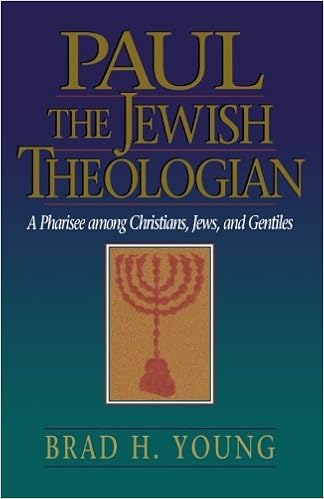Young's book serves as a useful corrective to readers of Paul the Apostle's epistles of the New Testament. Young's basic premise is that Paul called himself a Pharisee, so readers should take Paul at his word. Paul was a devout Jew, writing for a largely Gentile audience. As a devout Jew he would never have dismissed the Torah as so much flotsam (as many christians assume); rather, he would have honored it. Young shows how Paul does so, tracing many of his concepts to other Jewish writers near the same time of Paul's writing. Eternal punishment, Young claims, is discussed more in Paul's work than in the Old Testament, showing that Paul did not introduce a God more kindly than the one in Jewish teaching; Young also shows how ideas about grace and God's mercy run throughout Jewish teaching, and how Judaism is not, at its core, a salvation-by-works religion. Early Christianity--and Paul's teachings by extension--rest within that Jewish foundation, something that Christians are apt to forget, influenced as they have been by early antisemitic writers like Marcion.
Young's points are well taken. My one quibble with the book would be that at times I think Young makes his point too stridently. Yes, Paul was a Pharisee, and there were other Pharisees who were followers of Christ. But Young seems to make it appear as if all persecution of early Christians arose from other sects like Sadducees or from proselytes to the Jewish religion, when scripture is clear that Pharisees were numbered among those who persecuted the new sect. After all, Paul the Pharisee was one of the greatest persecutors of the church before he became one of its strongest proponents. But this is a minor quibble, one perhaps caused more by my impression of the overall thrust of the book than by Young's actual words, when taken in the context of Young's overall thesis.
Tuesday, November 10, 2009
On "Paul, the Jewish Theologian" by Brad H. Young ****
Labels:
Books,
Brad H. Young,
Four-Star Nonfiction,
Nonfiction,
Paul the Apostle
Subscribe to:
Post Comments (Atom)







No comments:
Post a Comment